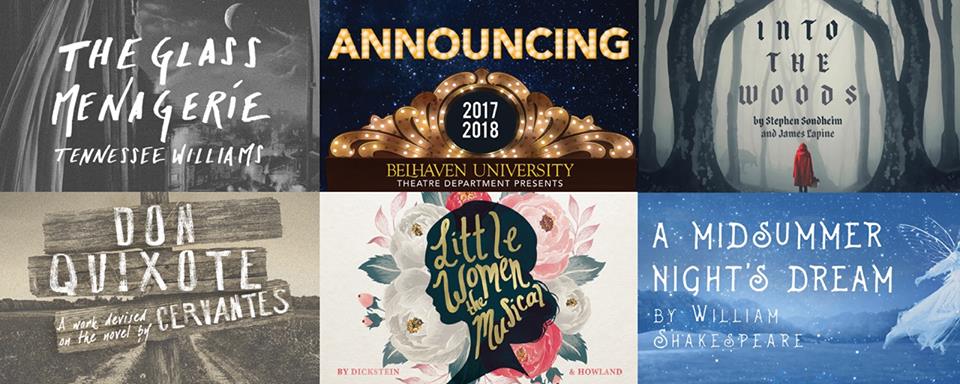This is an article about Mark Rylance, Tony award winning actor currently starring in La Bete on Broadway. He has some interesting views on the value of training in Improvisation for actors doing theatre work.
Category Archives: articles
Theatre using New Technology
And no, we’re not talking about brighter lights or online ticket ordering – it’s an article which talks about the use of newer technologies for interactive and immersive theatre.
Talent or Determination?
This is an article from the New York Times that talks about the source from which achievement or excellence in a field might emerge; is it the always elusive natural ‘talent’ or the determination to improve one’s skills?
It has for a long time been our perspective that while some people may be gifted by God with a certain amount of natural talent, anyone is capable of improving their natural skills through concentrated and focused effort. In the world of theatre, film and entertainment, it is not always the most gifted which survive the field for the long term, but those who find ways of continuing to work, improve and contribute, even if they aren’t the star – that being a part of the theatre IS success in the field, not the spotlight.
This article mentions that it takes 10 years of “deliberate practice” to excel in a particular field. Others have quoted an investment of more than 10,000 hours of focused rehearsal and study (about 1.15 years, if you practiced 24 hours a day, 7 days a week, 59 1/2 weeks in a row – which would be neither possible nor effective). Most students entering college level study in the field of theatre have less experience in deliberate practice than in what might be called ‘theatre activity’ – games, performances and events which are more about the participation than about concentrated, evaluated experience which progresses the skill and produces work of consistently higher quality performance. And it is unlikely that any student, after completing 4 years of college, can fully reach the “10,000 hours” necessary to reach the level of accomplishment to which most students aspire – even if they arrive with a high level of ‘talent.’
But what we strive to accomplish, as educators, is to shift the mindset of our students from theatre activity to focused practice of the art of theatre, provide the template for rehearsal and study which will improve their skills, and set them on the life path where they continue the journey towards excellence in their field, enabling them to apply those skills in the service of their fellow theatre practitioners and the audience for their work, allowing the Lord to work through their dedicated efforts.
Interactive Theatre for Advertising?
An alcoholic beverage company has commissioned artists of a theatre company called Punchdrunk known for interactive and immersive theatre pieces to create an experience for audience members which involves traveling from site to site where people drinking their beverage can be found. A new approach to advertising!
Article – Another us of theatrical makeup
Apparently there are ways of utilizing a theatre person’s makeup skills outside of the stage and Halloween purposes…
Actor/ Audience relationship
A New York Times article about shows that were successful in their Off-Broadway productions, but struggle in their Broadway incarnation with the changed venues. Off Broadway theatres are typically smaller houses (often 500 seats or less), whereas Broadway theatres can be much largers (up to 1500 seats). The change in the relationship of the performance and the audience can greatly alter the perception of the show itself – some plays are intimate, others are on a grand scale – and attempting to translate an intimate production into a house built for grand presentations can be a challenge for designers, actors and directors.
This is why we are pleased to have a flexible, Blackbox theatre at Belhaven, where we have the ability to make adjustments to the space to fit the scale of the production itself – moving the seating in or out or even away to suit the show – and have our Theatre 151 space for productions that are “ultra-intimate” (about 35 seats…).
The Healing Power of Culture…
Check out this article from England’s the Guardian.
Apparently, a town in Finland has authorized the distribution of free tickets to the city’s cultural events through the health care system via the hospitals – under the theory that an evening at a cultural event may have medicinal effect. An exciting theory…
Cinema Devina from “Soul Food Movies”
Ron Reed, a long time friend and artistic director of the wonderful Pacific Theatre in Vancouver, has a blog called Soul Food Movies (which I highly recommend).
This post I thought particularly poignant – on the concept of cinema devina – encountering the sacred within the movie watching experience.
Shakespeare in OP
OP stands for Original Pronunciation – so Shakespeare in OP would be to speak the lines of Shakespeare’s plays in an accent that would be the same way audiences would have heard the plays in the late 1500’s. It’s not the same as a contemporary English accent, and it certainly isn’t modern American pronunciation.
This link is to an article about a production of Midsummer Night’s Dream to be performed entirely in OP, a result of the research of linguist David Crystal and director Paul Meier, and it contains a couple of short videos which demonstrate the sound of the accent.
